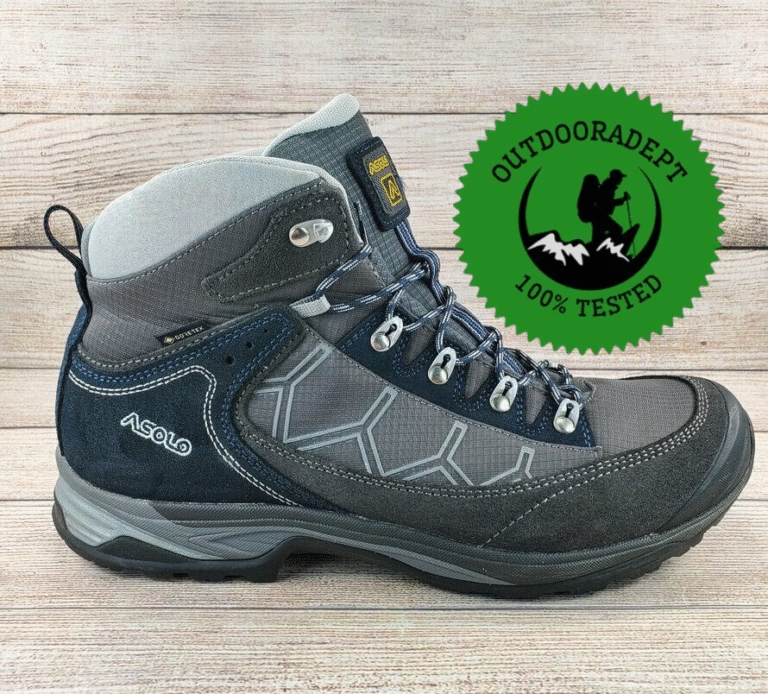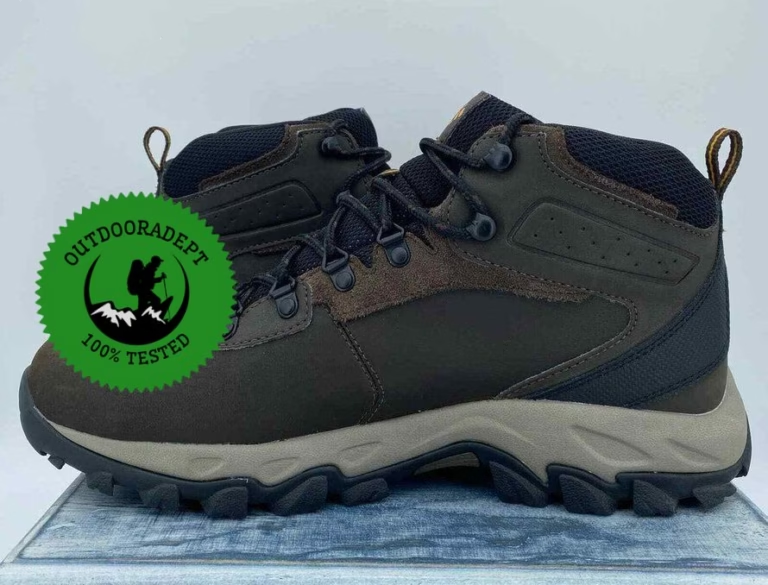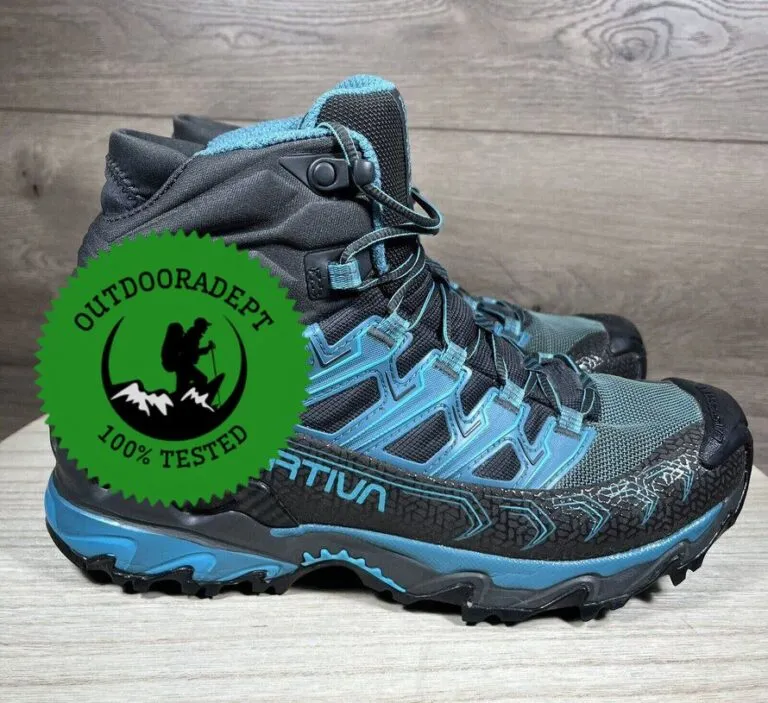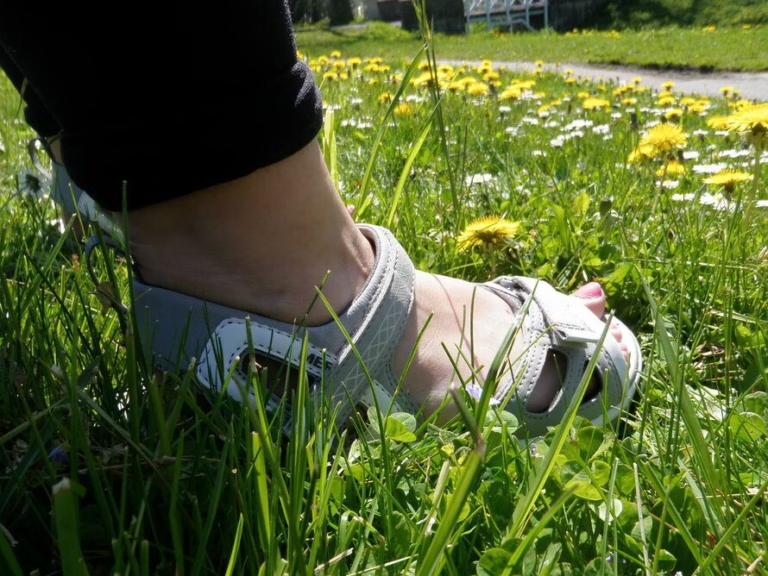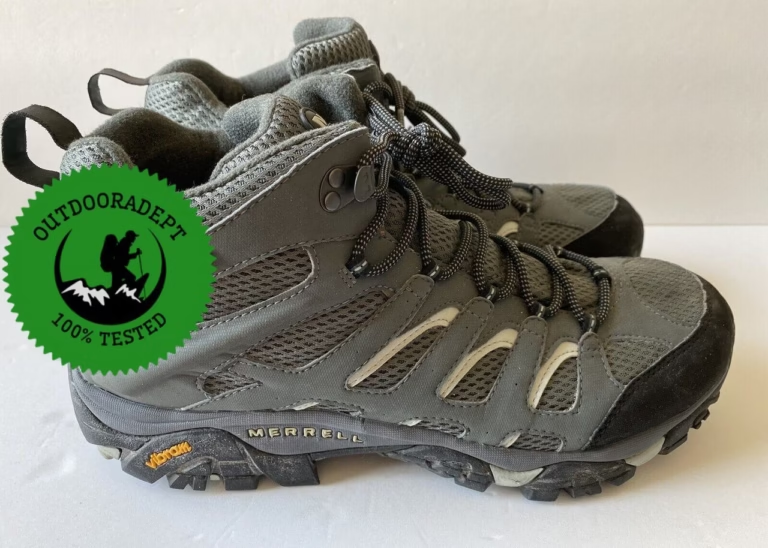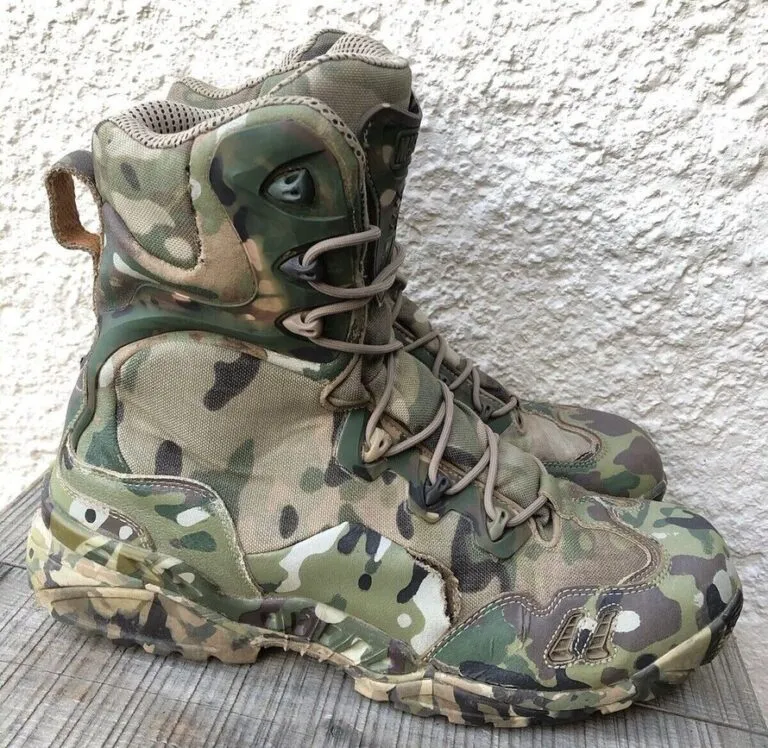With tons of hiking boots and shoes out there, folks often ask what I like to wear and why. I say every type has its ups and downs—it all boils down to what feels right and comfy.
However, the debate about hiking boots vs hiking shoes still seems to continue, with many experts preferring one option over the other.
Continue reading to discover when it’s better to choose hiking boots instead of hiking shoes, and to understand the key features to consider while purchasing either of them.
When to Use Hiking Boots?
If you walk on uneven terrain often, it’s wise to get sturdy hiking boots. These boots help on icy winter paths, keeping your feet cozy, dry, and protected from things like sharp rocks.
For those with fragile ankles or who need more arch support, hiking boots are a worthwhile choice. Consider how often you hike each year as well. Lighter boots might be enough if you hike easy trails and don’t go over 100 miles.
However, if you’re serious about long-distance or mountain hiking, go for mountain boots. They’re made to endure more wear and tear.
When to Use Hiking Shoes?
Hikers who frequently explore moderate and less challenging terrain often find comfort in opting for hiking shoes.
During the summer months, I personally favor lightweight hiking shoes as they effectively combat sweaty feet, especially on scorching days.
Most of these shoes also prove valuable when traversing watery terrain, such as crossing small streams, thanks to their Gore-Tex and mesh construction, ensuring rapid drying.
What Is The Difference Between Hiking Boots And Hiking Shoes?
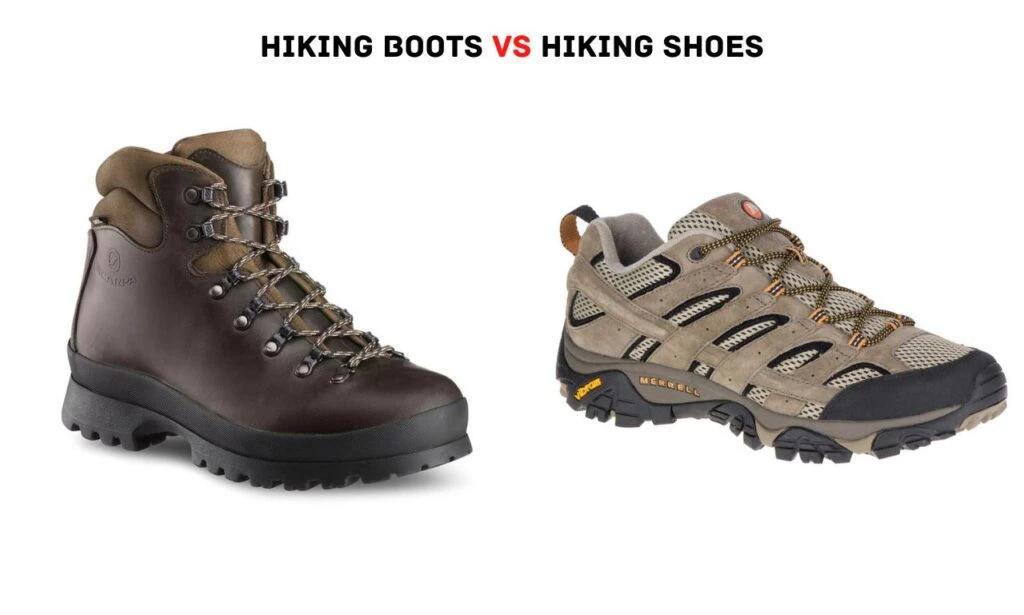
Hiking boots excel on challenging terrains and extended treks, offering durability and strong ankle support. Conversely, hiking shoes, with their lighter, more flexible design, suit shorter, less demanding trails and day hikes.
For long-distance hikers navigating technical, rugged terrain, hiking boots are the go-to choice, especially in winter conditions. They feature a high-cut design that provides essential ankle support, particularly when carrying heavy backpacks.
Hiking shoes offer comparable foot protection but feature a lower cut that doesn’t extend above the ankle, providing less ankle support.
They’re lightweight and require minimal break-in time, making them ideal for moderate hikes favored by recreational and casual hikers. However, they may not be suitable for carrying heavy loads.
Both seasoned and novice hikers can choose between these options based on their preferences and the nature of their hikes. Beginners might find starting with lightweight hiking shoes advantageous to conserve energy compared to bulky boots.
Pros And Cons Of Hiking Boots
When choosing boots for hiking footwear, consider the following advantages and disadvantages.
| Advantages of Hiking Boots | Disadvantages of Hiking Boots |
|---|---|
| – Good ankle support | – Heavier than other types of hiking footwear |
| – Provides foot protection | – Take a long time to dry if they get wet |
| – Keeps your feet dry in wet conditions | – Require a breaking-in period to mold to your feet properly |
| – Provides warmth in winter conditions | – Harder to pack in your backpack because of their weight |
| – Good durability | |
| – Excellent traction |
Pros And Cons Of Hiking Shoes
If you’re thinking about a hiking shoe, here are some things I recommend that you consider before choosing this type of hiking footwear.
| Advantages of Hiking Shoes | Disadvantages of Hiking Shoes |
|---|---|
| – Less chance of getting blisters from foot rubbing | – Provide little ankle protection, not ideal for steep trails where you might roll your ankle |
| – Quick drying materials | – Less protection for your foot on rough surfaces |
| – Very comfortable with good cushioning for your feet | – Not as durable as traditional hiking boots |
| – Lightweight and easy to pack without adding much weight | |
| – Breathable, helps keep your feet aired out |
Features to Consider When Choosing Hiking Boots or Hiking Shoes
When deciding between hiking shoes and hiking boots, I advise considering these essential criteria to choose the most suitable option.
Weight
Hiking shoes consistently offer a substantial weight advantage compared to boots. However, heavier boots may be necessary for mountainous or rugged terrain. Additionally, they provide essential warmth for winter hikes.
Material
Leather boots demand extra maintenance for upkeep and require extended drying time when soaked. Conversely, most hiking shoes employ materials like Gore-Tex, offering comfort for various hikes and excelling in warmer conditions.
Durability
Hiking boots will typically last 500-1000 miles of hiking, even for challenging hikes or going off-trail.
However, even the best hiking boots will need replacement more often than that. Boots also tend to have protective toe caps built in that help make them last longer, especially if you walk up or downhill.
On the other hand, hiking shoes usually have a more limited lifespan, anywhere between 100-500 miles less.
Ankle Support
Stiffer boots offer superior ankle support compared to hiking shoes.
Consider your specific needs, including your feet, ankles, and any special requirements when determining the level of support you require from footwear.
Terrain
For challenging terrains like scrambling, mountain climbing, off-trail hiking, or technical landscapes, opting for stiffer boots is advisable over lightweight hiking shoes.
Trail runners and similar shoe types are most suitable for well-maintained trails.
Waterproof Options
You will find both waterproof boots and shoes available on the market. However, you may opt for a boot if you frequently hike in mud or rainy conditions and, of course, if you’ll hike in an area with a lot of snow.
Boots will work better at keeping water out of your shoe, especially from the top.
FAQs
Hiking shoes give you more support, comfort, and a bit more protection than regular shoes, which is important when hiking because you don’t want to end up with blisters, tired feet, or other problems.
You shouldn’t wear regular road running shoes for hiking, as they don’t provide as good performance on these types of trails. However, you can wear trail running shoes on hikes because they’re designed both for running and the types of terrain you’ll encounter.
A trekking boot is a hiking boot used in very harsh terrain (ice, snow, etc.). You can generally use the term interchangeably, although some people consider hiking boots to include less rugged options as well, like a hybrid or mid-height boot.
Wearing trail running shoes instead of hiking boots brings several advantages. Trail runners are lightweight, providing agility and speed. They offer excellent breathability, keeping feet comfortable during intense activities. Additionally, their design allows for improved flexibility and natural movement on trails.


